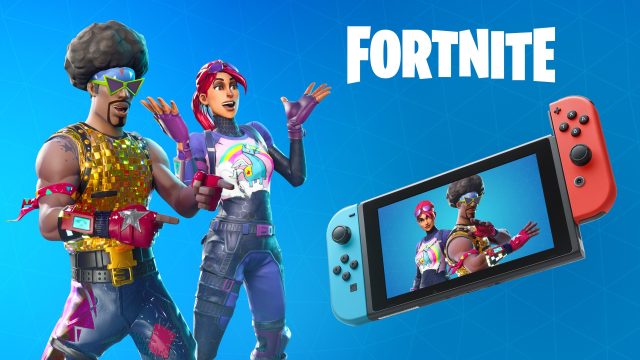
Enlarge / Whoever wins this case will get a llama full of prizes.
Federal District Judge Yvonne Gonzalez Rogers heard arguments this morning regarding Epic’s request for a temporary injunction in its case against Apple. That injunction would force Apple to put Fortnite back on the iOS App Store during the trial, following the game’s removal last month over Epic’s skirting of Apple’s in-app purchase rules.
The hearing gave the clearest indication yet of both parties’ best arguments in the matter and of which positions seem most likely to hold sway with Rogers as the case heads toward a full trial.
When is a monopolist not a monopolist?
A central issue in the case is Epic’s contention that Apple’s exclusive control over the iOS App Store constitutes an illegal monopoly that hinders competition. Today’s discussion of Epic’s claim centered heavily on what market, exactly, Apple is allegedly monopolizing.
Apple argued that iOS is just one of many platforms in the wider competitive market for video games like Fortnite. There, Apple faces competition from console makers, PC-based stores like Steam and GOG, and Google’s Android platform to name just a few. In this market, Rogers herself noted that most of the competing platforms charge the same 30-percent fee to developers as Apple, suggesting iOS lacks any harmful market-controlling power.
Epic’s lawyer Gary Bornstein argued in response that the market in question should not simply be viewed as “all the ways someone can reach a user to play a video game.” Where Apple holds the monopoly, he said, is in the market for developers to distribute their game to iOS users, specifically.
“In order for Apple to face competitive discipline [from the market], it would mean there would need to be a meaningful number of developers who would give up the platform if Apple raises its price,” Bornstein argued. “We know that’s not the case. They’re not going to give up the opportunity to reach a billion users.”

Enlarge / Apple argues that Fortnite‘s availability on platforms like the Switch shows it doesn’t have monopoly control over the mobile gaming market.
That’s an important distinction for Epic to make, legally. There’s some existing case law to suggest a company can have monopoly control over a secondary market (in this case, app downloads) even if it faces competition in a wider market (in this case, video game and/or smartphone hardware). Proving that case is an uphill battle, though, that usually requires showing that customers are unfairly “locked in” to that secondary market after making the primary purchase.
63 percent vs. 10 percent
In the hearing, Bornstein noted that “63 percent of iOS users who play Fortnite play only on iOS.” Those players aren’t technically “locked in” to iOS—they could switch to another platform, and many do. But they also don’t necessarily have multiple devices to play on and might not be able to afford separate hardware to access Fortnite, he said.
Even if iOS players do have access to other hardware, Bornstein said the situations are not always analogous. “That’s like saying there is not a [monopoly] market for ride-sharing and taxis if people can also walk or bike or get a friend to drive them or access public transit,” he said. “You can’t play an Xbox when you’re on a bus.” (Though you can play a Switch, as Judge Rogers noted in response.)
Apple lawyer Richard Doren said the number of iOS Fortnite players who don’t use other platforms is immaterial. Instead, he cited Epic co-founder and CEO Tim Sweeney’s assertion that less than 10 percent of Fortnite‘s daily average users played on iOS. That shows “Epic itself uses the [alternative] options in the marketplace available to it,” he said, and that Apple can’t exert monopoly control over Epic’s Fortnite business.
“Fortnite is not entitled access to everyone on the globe,” Doren said. “They just need alternatives [to iOS] available, and they have that in spades.”
In her statements, Judge Rogers seemed more inclined to Apple’s view of its position in the wider video game market. “If we look at this plaintiff and industry, walled gardens have existed for decades,” she noted. “Nintendo has had a walled garden. Sony has had a walled garden. Microsoft has had a walled garden… In this particular industry, what Apple is doing is not much different… It’s hard to ignore the economics of the industry, which is what [Epic is] asking me to do.”
Fortnite aside, though, Judge Rogers also said she was inclined to agree with Epic’s assertion that “there is an uproar in the marketplace about the lack of competition for [distribution of] iPhone apps. You read the papers, I read the papers, it’s there.” That said, Judge Rogers also suggested this specific case might not be the right one to make that argument, “given the amount of competition for mobile games.”

